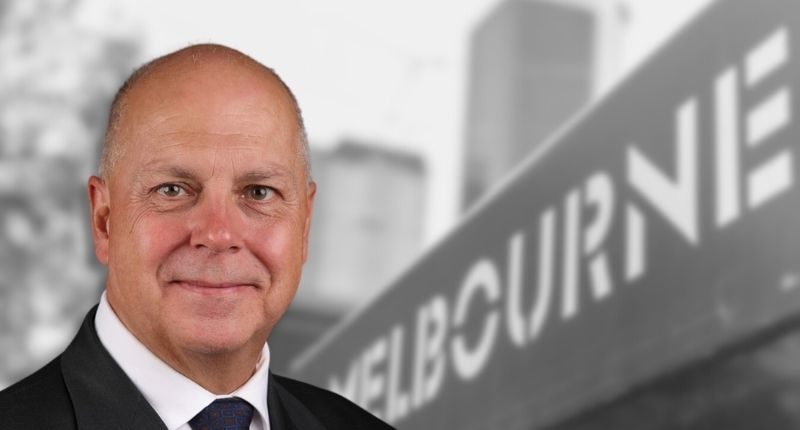- Victoria has delivered a budget deficit of over $11B
- Property Council continues criticism towards property tax changes
- Significant investment towards social housing, homelessness and suburban revitalisation
Tim Pallas, the Victorian Treasurer, has handed down the state’s 2021-2022 Budget.
Unlike Western Australia which recorded a surplus, Victoria recorded a deficit of $11.6 billion. Victoria endured a harsher lockdown than the rest of the nation during the past year, reflecting a longer road to recovery for the state.
By June 2022, net debt for the state is expected to reach $102.1 billion with the unemployment rate currently 6.1% – higher than the national rate of 5.5%, according to the Australian Bureau of Statistics (ABS).
While much attention has been devoted to the increases in support for those suffering from mental illness – which has been universally praised – attention has also been drawn to housing and property, which has resulted in a very mixed bag.
So what is in the budget for property?
Firstly, property investors are arguably among the losers of the budget.
Along with increases for two current land taxes and stamp duty for properties above $2 million, a new Windfall Gains Tax applicable to land impacted by rezoning will be introduced.
The taxes have been heavily criticised, including the Property Council of Australia (PCA) who labelled the changes as “not the right time, not the right taxes” and added the Victorian Government has given itself a 13% ‘pay rise’ due to the increased taxes.
According to the Property Council, 50% of homes in 120 suburbs by 2030 will be hit by the changes to stamp duty.
“Victorians pay more than 50 per cent of the government’s tax revenue through property, and with massive hikes on land tax, stamp duty, and investment in new projects, these taxes are anything but fair,” said Danni Hunter, the Victorian Executive Director of the Property Council of Australia.
However, Ms Hunter welcomes a temporary increase in the off-the-plan concession for stamp duty for certain investments in the Melbourne CBD. Additionally, Ms Hunter welcomes stimulus to attract construction work in the CBD, saying without new projects 6,000 jobs could be lost in this sector of the industry by 2023.
She concluded her remarks by reinforcing her belief that the industry – which she says employs about one in four Vicotirans – should not be over-taxed in the current climate.
“With NSW and other states working toward rationally reducing their reliance on property taxes, the Victorian Government has demonstrated that it has a very real addiction to this revenue,” she said.
“Victorian families will pay more to buy a house that suits their needs. Victorian businesses will pay more in the form of increased land tax and costs on businesses through their office space or warehouses. This, in turn, will flow through to the cost of products and services for every Victorian.
“With governments around the country focused squarely on stimulus and increasing investment because they know it is good for jobs and their communities, the Victorian Government has taken the opposite approach.”
Danni Hunter, Property Council Victoria
Funding increases for social housing
The budget includes further funding backing up the $5.3 billion Big Housing Build.
Over $193 million will be allocated to support those experiencing, or at the risk of, homelessness.
$110 million, in particular, has been allocated towards the Private Rental Assitance Program that aims to prevent and end homelessness by rapidly rehousing in private rentals.
$47 million has been given to the Homelessness Rough Sleeping Action Plan which provides funding for outreach teams in Geelong, Frankston, Dandenong, Maroondah, Swan Hill, Bendigo and Warrnambool.
Amongst other funding, $6.6 million will be devoted to improving support for those residents in public housing by focusing on jobs and employment pathways – along with education and training.
“Our investments in housing are fundamentally about giving more Victorians security and stability – whether that’s providing a roof over your head, or a job building one,” said Richard Wynne, the Minister for Housing.
“Last year showed why home truly matters. With this Budget, we’re continuing work to make sure more Victorians have that stable foundation.”
Richard Wynne, Minister for Housing
Suburban revitalisation
$87.6 million has been allocated towards funding local infrastructure ranging from playgrounds to libraries. $50 million of this, in particular, will be spent on delivering local infrastructure projects and community facilities in Melbourne’s fastest-growing areas.
“Our local government and suburban programs are about people and communities. Across Victoria, we’re delivering the local projects that matter – and driving the local jobs that will secure our recovery,” said the Minister for Local Government and Suburban Development Shaun Leane.
“It’s important that councils truly represent the communities they serve. This investment will give more women the chance to develop careers in local government and shape their communities.”
Shaun Leane, Minister for Local Government and Suburban Development








